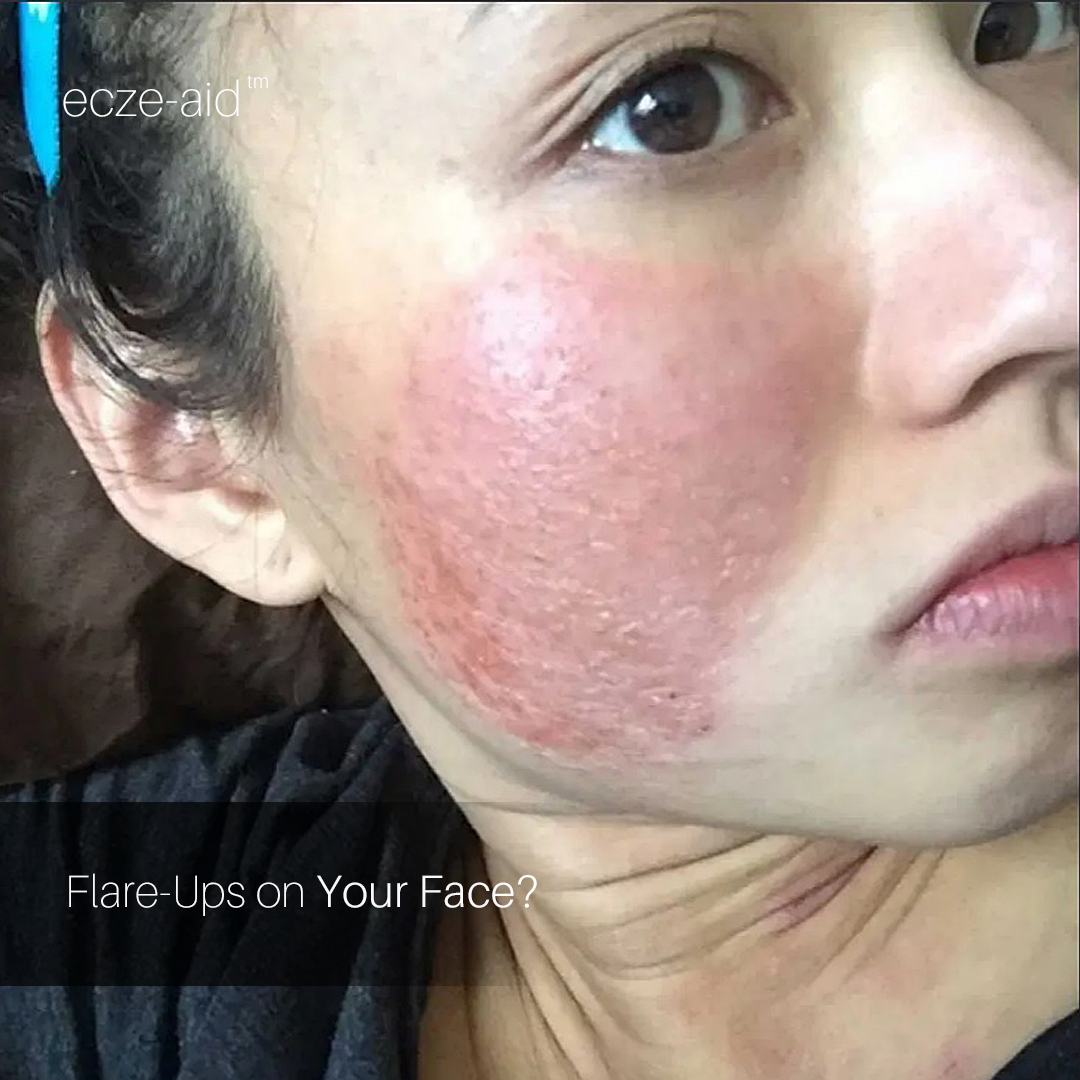Having eczema flare-ups on your hands and legs can be extremely irritating, and it’s even worse for those who have flare-ups on their face. Whether you are in the office or school, having flare-ups on your face not only poses discomforts and itchiness, it also impact your self-esteem and confidence.
For some people, facial eczema can be a short-term problem, lasting only a week or two. For others, it may be a long-term skin problem that will negatively impact their daily life. Similar to eczema on other parts of the body, the affected face area becomes red, dry and flaky, and sometimes, crusty or blistering.
Facial eczema can appear in isolation or as part of a generalized eczema
Facial eczema can be part of a generalized eczema condition, known as Atopic Dermatitis [AD] that may appear on any area of the body, and sometimes it can be a standalone condition such as Seborrheic Dermatitis [often mild, appearing simply as dry scaly skin around the creases of the ears and eyebrows], Irritant Contact Dermatitis [irritation caused by skincare, cosmetics and toiletries] and Allergic Contact Dermatitis [immune system in the skin that overreacts to a particular substance, usually inhaled or eaten].
Eczema due to light sensitivity
Daily exposure to sunlight can be a trigger to eczema. Certain medications can cause one’s skin to become more sensitive to sunshine and burn easily. Allergic light-sensitive eczema can be caused by touching of plants followed by sun exposure [known as phytophotodermatitis] while chronic actinic dermatitis, a rare but particularly severe form of sun sensitivity that often affects older men.
Practical facial eczema treatments:
- Avoid the use of cosmetic skin cleanser as they usually contain fragrance and detergent.
- Avoid rubbing your face, gently pat dry with a soft, clean towel after wash.
- Do not use soap, exfoliating scrubs and toners
- Do not use cosmetic moisturizers because they usually contain a bigger potion of ingredients that could be potential allergens
- If you have eczema around the eyes area, avoid using make-up products such as liquid foundation and mascara as it can irritate and aggravate the condition. You may opt for mineral make-up product that is generally less irritating to the skin.
- Try anti-yeast ointments or creams [with or without a mild topical steroid] to manage seborrheic dermatitis.

